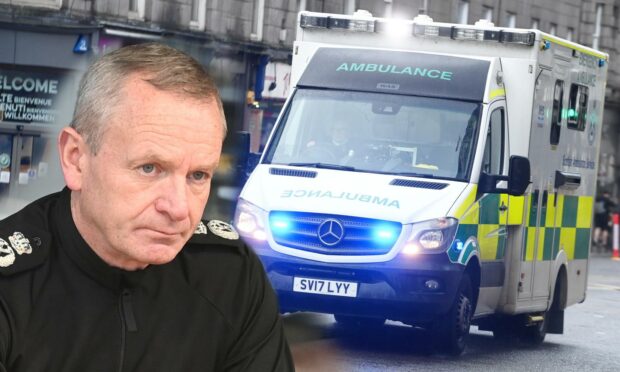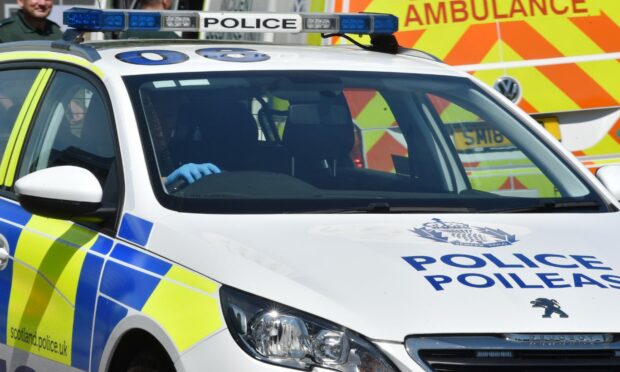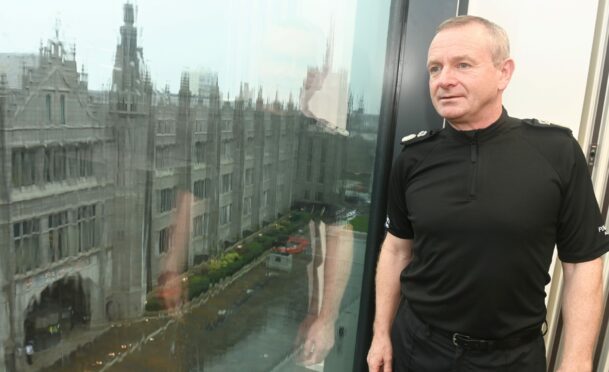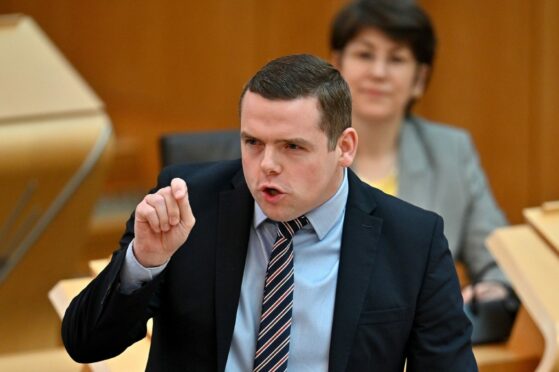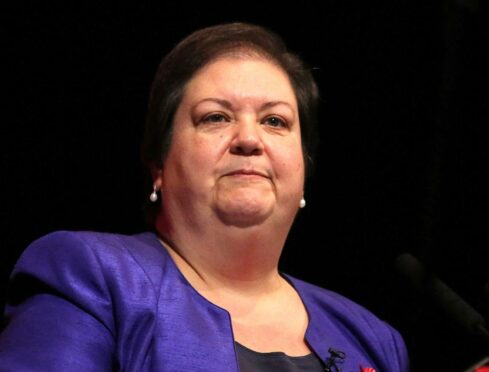Scotland’s top police officer has admitted he is concerned about the “excessive demand” his officers are picking up for other public services.
In the first in a series of exclusive interviews with the Press & Journal, Chief Constable Iain Livingstone revealed his staff are increasingly finding themselves as the service “of first and last resort” for people with mental health problems, addiction issues and in need of hospital care.
Mr Livingstone stressed that his officers would never refuse anyone who needs their help but said these extra demands were impacting officers’ ability to attend incidents of crime.
Mr Livingstone said: “I am concerned about the amount of work we are doing where people have mental health issues, addiction issues and where there is pressure on the ambulance service.
“The ambulance service will not ask us to take people to hospital, but we will often be in a position with a citizen who needs to be taken to hospital and an ambulance is not available – therefore, by definition, we end up taking them to hospital.
“We don’t have the medical training for that. I don’t think it’s the best service that can be provided. But we will continue to do that because we will never ever stand on the other side of the road if someone needs help.
“We do pick up a lot of unmet demand from other services because we are the service of first and last resort – and I do want us to be that service.
“But I would like to make sure that the other services are structured and resourced in a way that is best meeting the needs of the public.”
Mental health incidents increasingly becoming part of officers’ daily duties
Mr Livingstone said the vast majority of calls to police do not result in a crime being reported.
“I would always wish us to be available – a service of first and last resort,” he said. “But I am concerned about the excessive demand we are picking up from other public services – or at other times being a service that maybe doesn’t exist.
“What we do know is that 80% of the calls that come into our contact and service centres do not result in a crime report being recorded.
“That doesn’t mean that 80% of our business is non-crime, but it does mean that we are the first point of contact for many different things.
“I always want us to retain that broader sense of public service because that allows us to enforce the law when we need to do it.”
Police ‘filling in for ambulances’ amid lengthy waiting times, reports suggest
The chief constable said incidents involving mental health issues are increasingly becoming a part of police officers’ daily duties – and it is something he has raised at the top levels of the Scottish Government.
He said: “We will go and meet an individual who clearly needs some medical assistance or an intervention and are often in distress.
“When we look at that amount of time that our officers are spending engaged with that individual it means they can’t necessarily go to another incident where a house has been broken into or someone may have been assaulted. These are the challenges that we need to balance off.
“I’ve had discussions with the cabinet secretary for justice and the cabinet secretary for health about this mental health concern that is prevalent across all parts of society, and the truth is, as a society, we need to be in a better place to deal with these people who are in distress.
“It’s clear that there are people who are suffering with mental health concerns who are not getting the support that they need.
“We’ve raised it with all parts of government to say that there is an unaddressed need here and at the moment the police are picking up a lot of that.”
Political reaction
Scottish Conservative leader Douglas Ross said the chief constable was “reiterating” what he’s been hearing from frontline police officers in his constituency of Moray across the north of Scotland “for some time”.
“As more and more services are reduced or withdrawn often the police are having to deal with cases which are not immediately within their remit”, Mr Ross said.
“In other circumstances, they take a suspect or someone from custody into A&E and can be there for hours or for the entirety of their shift – the Scottish Government have to realise the pressures this then puts on frontline policing.
“And concerningly, in remote and rural areas, in particular, it will have very few officers able to respond to emergencies if they are stuck in hospital or in A&E departments.”
Scottish Labour’s deputy leader and health spokesperson Jackie Baillie said: “Ambulance services in Scotland are already buckling under pressure – and now the strain is hitting other emergency services.
“Police are trying to help plug the gaps in a system that is falling apart at the seams, but this situation isn’t fair on anyone.
“People dealing with a medical emergency need real medical assistance.
“With winter fast approaching, the SNP need to get a grip of the crisis still wreaking havoc with ambulance services before more lives are lost.”
A spokesperson for the Scottish Ambulance Service said: “We do not ask police officers to attend emergency situations instead of an ambulance crew or transport patients to hospital.
“For all 999 calls, the ambulance service will always dispatch the nearest, most appropriate response.”
A Scottish Government spokesman reiterated the statement by the Scottish Ambulance Service that it does not “ask police officers to attend emergency situations instead of an ambulance crew or transport patients to hospital”.
But added: “Scotland is well served by its police service, and its hardworking, dedicated and professional officers and staff who have worked tirelessly throughout the pandemic.”
